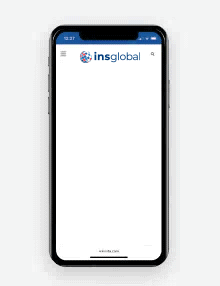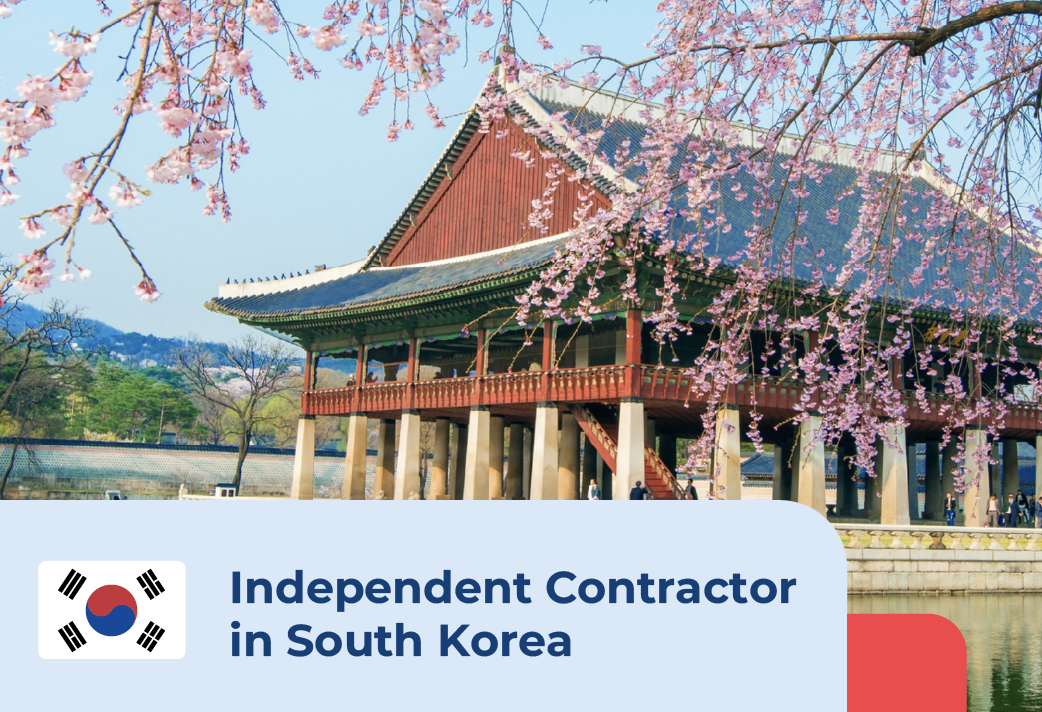South Korea is an ideal location for foreign companies wanting to hire skilled and professional workers, but there are potential problems to consider before getting started. In this article, we’ll outline how you can recruit and pay contractors in South Korea in a safe and efficient way. We’ll also highlight the important tax and payroll information that you should always keep in mind.

Tired of scrolling? Download a PDF version for easier offline reading and sharing with coworkers
What is an Independent Contractor in South Korea?
South Korean labor law characterizes an independent contractor as an external business or entity that provides their work through a contract of services. The nature of the relationship should have a high level of independence and autonomy on the side of the independent contractor.
Companies typically hire contractors because they have a specialized skill, but companies do not have the same kind of close working relationship with a contractor in the same way as they would with an employee.
The Potential Dangers of Hiring Independent Contractors in South Korea
When it comes to hiring an independent contractor in South Korea, it’s important to understand how the local labor law characterizes this relationship. Full-time employees in South Korea are given added protections but also come with additional responsibilities for the employer.
In this way, the South Korean government may take a closer look to make sure that businesses are not misclassifying employees as contractors on purpose to get away with withholding benefits that should rightfully be awarded to their employees.
If a business is found to be misclassifying contractors either by accident or on purpose, or by not having their contracts in order, they could be liable for a hefty fine or penalty. In some cases, the business may be forced to backpay for social security contributions on that employee’s behalf.
How to Hire Independent Contractors in South Korea as Remote Workers or Through a Local Entity
Operating as a freelancer or a self-employed worker is an incredibly popular option in South Korea. These positions are generally remote and offer employees more flexibility compared to full-time employment. The rate of freelance contractors has increased substantially over the last few years, making it the perfect time to expand and hire independent contractors in South Korea.
Like in most parts of the world, self-employed workers in South Korea do not receive the same benefits and protections as full-time employees. This means that they are responsible for all their own tax obligations and social security contributions.
Contractors in South Korea, therefore, have to manage the entire process themselves if they want access to any kind of protection or benefits.
Finding remote workers in South Korea can be challenging without local experience or the right local structure. While there are many platforms and websites that help businesses find talent, these options are not always the most reliable when it comes to finding professionals or skilled workers. Alternatively, opening a company in Korea to reliably hire and pay contractors in South Korea brings up a whole range of employer responsibilities and problems.
Working with an Employer of Record in South Korea (EOR), however, simplifies the entire process and enables you to find experienced talent anywhere in the world. This is by far the most efficient and effective way to recruit and hire remote workers in South Korea.
EOR services go beyond recruitment and even help you hire and manage the contractor as part of your team. Everything from payroll processing to contract management is taken care of so that you can focus on growing your business without worrying about HR matters like how to safely pay contractors in South Korea.
Payroll and Taxes in South Korea
Hiring an independent contractor in South Korea begins with a contract between two parties. This contract should outline the nature of the services required and details about the payment process. In some cases, this contract can include an invoice for the work being performed.
When it comes to payroll and taxes for independent contractors, the client’s business has no duty to manage any part of the process. This means that the independent contractor is solely responsible for paying income tax and making any social security contributions by themself.
Since independent contractors operate as external entities or businesses, they must pay income tax on their net income. They are also necessary to file an annual tax return that outlines their total income, deductions, and net income.
As an employer, you don’t have to worry about deducting taxes or social security contributions when you pay contractors in South Korea. However, it’s best to ensure that the independent contractor is properly classified to prevent potential penalties and fines. However, being aware of the contractor’s responsibilities and doing your due diligence to ensure they are properly managing their own affairs can be a great way to avoid risks when you pay contractors in South Korea.
Effective Ways to Pay Contractors in South Korea in 2024
Independent contractors must be paid differently to full-time employees. It’s important to ensure you’re not paying them a salary to avoid misclassification risks. Self-employed workers should receive the payment amount both parties agree to in the contractor service agreement.
You can pay contractors in South Korea hourly, weekly, monthly, or per project.
Digital Wallets
Digital wallets are one of the most efficient ways to pay people online. The setup is generally quite simple, and you can effortlessly send funds to people in a matter of seconds.
However, there are fees that generally come with these wallets that make it costly for businesses to send larger amounts of money to employees or vendors. Additionally, security can also be a concern for many businesses sending money abroad.
Digital communications app Kakao launched its own digital wallet and online payment system, Kakao Pay, which is extremely popular in South Korea. Many contractors will use Kakao Pay, but always ensure you properly mark and file payments to contractors for tax purposes.
Direct Bank Transfer
A direct bank transfer is a tried and tested, secure way to pay contractors in South Korea both locally and from abroad. This method deposits funds directly into the bank account of the recipient. However, international bank transfers can take much longer than local transfers.
While it is possible to pay contractors in South Korea via direct transfer, it’s important to find some way to differentiate contractor payments from regular employee salary payments. There may also be fees and foreign exchange rates to consider if you pay internationally. Due to this, a simple transfer can take up to a week to finally clear.
Partner with an Employer of Record Service (EOR) in South Korea
Global EOR services in South Korea make it effortless to pay independent contractors from anywhere in the world. This service combines the hiring process with management and payroll services so that you don’t have to worry about paying contractors locally.
An EOR in South Korea handles payments for you, ensuring that you pay contractors in South Korea on time and in line with all regulatory requirements. Additionally, the right EOR will take care of all the payroll processing, admin, and compliance on your behalf. That way, you can focus on running your business efficiently.
Hire Talent Around the World with INS Global
INS Global has been working with companies around the world for over 15 years, helping our partners to overcome the difficulties of hiring and paying contractors in South Korea. We have the expertise and experience to guide you as you expand your business abroad. From recruitment to onboarding, payroll management, and HR services, we have you covered with our simple and efficient PEO and EOR services.
We take advantage of the latest technology and global business trends to help you find and manage talent around the world. Our global employment strategies and local knowledge can help you find the best talent and pay contractors in South Korea, while remaining fully compliant with local labor laws and regulations.
Global expansion doesn’t need to be complicated or expensive. With INS Global, you can expand effortlessly and fearlessly in over 100 countries worldwide. Contact our specialists today to learn more.
FAQs
Can you hire independent contractors in South Korea?
Yes! It’s possible to hire and pay contractors in South Korea in full legal compliance. However, it’s incredibly important to ensure that you meet all the criteria of Korean labor law. Misclassifying independent contractors in South Korea can lead to hefty fines and penalties.
Because of this, it’s best to have a written contract in the form of an independent contractor agreement. This documents sets out the responsibilities of both parties, including payment terms.
Is working remotely popular in South Korea?
Working remotely has gained popularity in the last few years, especially in South Korea. The country has a large talent pool of professionals and creatives, with many working as freelancers or independent contractors.
What’s the best way to pay contractors in South Korea?
There are a variety of ways to pay contractors in South Korea. The most efficient, secure, and timely method is to make use of a local EOR like INS Global. This is an efficient option that allows you to recruit and manage independent contractors around the world.
Can an EOR help me hire and pay contractors in South Korea?
Yes! An EOR can help you recruit and manage your diverse workforce. This helps you hire and pay contractors in Korea as well as full-time employees or part-time employees.


SHARE